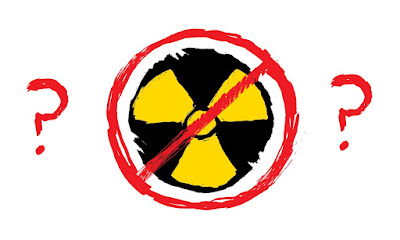Despite a recent U-turn, Germany's Green Party long opposed nuclear energy, holding this view even though nuclear power plants do not contribute to climate change. In the UK, the Scottish National Party (SNP) continues to reject nuclear energy.
There is a climate emergency, we are told. That means that we must radically change course immediately, or it will be too late.
Competing with other nations is hard to balance with saving the climate
The creation of an absolutely eco-friendly future, living fully in adherence to the philosophy of the environmentalists, is not something we actually have time for if we are in an emergency due to greenhouse gas emissions and global warming specifically. The idea of a grand new war of waste and economic competition by Western regimes and their ideological structures, against Russia and China, is not compatible with addressing a climate emergency.
In 2018, the United Nations was saying we have only until 2030 to avert an actual climate disaster (an event that will put serious strain on our countries, such as unprecedented refugees and threatening food shortages). The idea that the West can focus on eliminating energy dependence on Russia and economic reliance on China (that means accommodating an explosion of dirty industry and energy to accomplish such goals and waging conflicts throughout the world), and at the same time avert a climate disaster, is folly. Food shortages alone will be completely unmanageable, when added to the potential loss of a third of the world's wheat supply due to conflict in Ukraine.
If the West is going green, it is not going to defeat Russia or China in time to make the switch. At this point, hegemony really is incompatible with survival. Once a climate disaster really starts to have serious consequences, it is clear where all the world's refugees will be heading (the European Union and the United States). It would be game over for the Western side in this "Cold War" at that moment, as the West will be swamped by these refugees and unable to even feed them, perhaps being forced to beg for food aid from those we labelled as enemies.
Is it a lie?
Many reading the above would probably like to interject by saying that the barrage of contradicting statements (there is this climate emergency, yet we must wage this war of waste, and yet also we can scrap nuclear power stations even though they are not adding to that emergency and in fact mitigate it), means a major lie is being told somewhere. Many conspiracy theorists will probably reject the idea that there is a climate emergency at all, because of so many contradictions.
The consensus of the world's governments and the international panels of experts compels us to accept the reality of a climate emergency, whereas only a few would have us adopt declarations that conflict with this reality. Clearly, political partisans are interfering with a united response to the emergency, dependent as they are on having something to debate about.
The position of the German Greens up until their U-turn was absurd. They agreed with the idea of a climate emergency, yet they wanted to sabotage the response to it by trying to hobble our efforts to stop it, by condemning nuclear energy. They likely agree that hydraulic fracturing (fracking) is a dirty and polluting process, yet they want to buy the resulting American LNG so that they can avoid gas supplies from Russia. So, what looks like a commitment to save the Earth quickly crumbles in the halls of power, replaced with familiar and ugly realpolitik.
Is the SNP's continued rejection of nuclear energy in the UK more acceptable than some, because the SNP desires independence for Scotland and Scotland likely has enough energy sources to support its small population without any nuclear plants? Yes, but someone who is truly concerned about a global warming emergency, believing we only have eight years left to solve it, would likely still want to generate nuclear energy and sell it to their neighbours, to reduce their reliance on fossil fuels.

